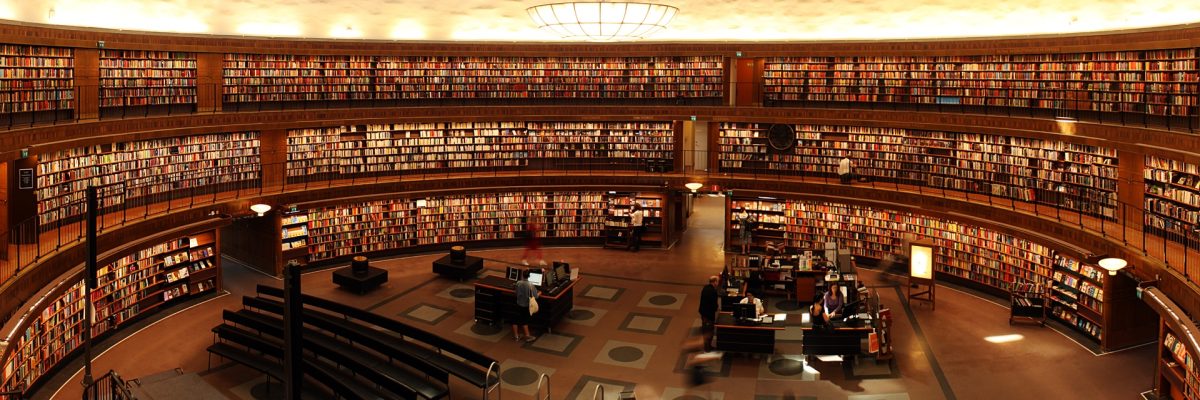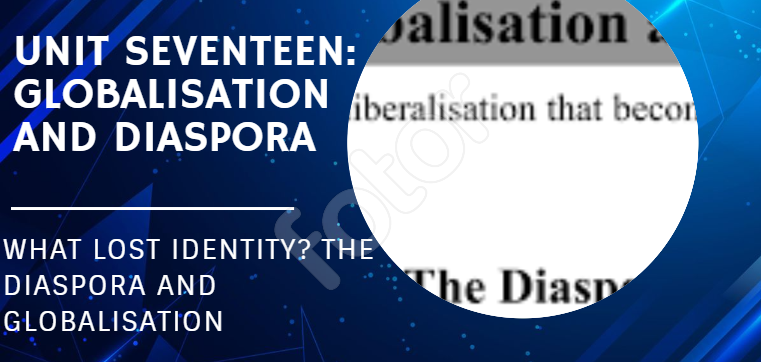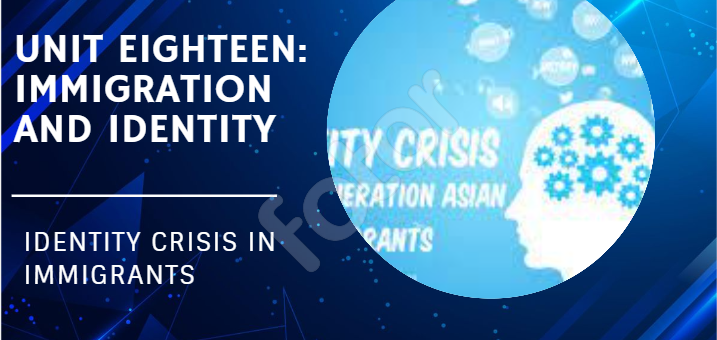Contents
Reading
What Lost Identity? The Disapora and Globalization
Ways with Words
A. Choose the words from the box for the following meanings.
| confront | refugee | ravage | assimilation | enclave | unsurp |
a. the severely damaging or destructive effects of something
Ans: ravage
b. someone forced to leave their country in order to escape war, persecution, or natural disaster
Ans: refugee
c. to face a difficult situation
Ans: confront
d. take a position of power or importance illegally or by force
Ans: usurp
e. the process of becoming a part of a group, country, society, etc.
Ans: assimilation
f. an area within a larger territory whose inhabitants are culturally or ethnically
distinct
Ans: enclave
C. Fill in the gaps with the correct word from the brackets.
a. I asked him if he was attending the ceremony and he shook his head ‘no’.
b. They made a horrible decision which caused irreparable damage to our company.
c. The leaders need to break down barriers so as to create favorable environment in the nation.
d. You ought to talk to the manager to settle the dispute.
e. Perhaps this issue will not get much media coverage.
f. This week is the first week of Joan as an in-charge. Everything is running smoothly.
g. I haven’t read the text thoroughly, but given a quick glance.
Comprehension
Answer the following questions.
a. Why did millions of Palestinians leave their country?
Ans: Millions of Palestinians left their country because they were denied basic human rights to find a better life and better economic opportunities.
b. How is the global culture formed? Is cultural identity possible even in the global culture? Justify?
Ans: The young generation from the huge waves of technological advancement form the global culture. Cultural identity is possible even in the global culture. Social media, street journalism and global transnational corporations participate in providing a catalyst for the new dynamics of global culture formation. The sense of togetherness brought with globalization promotes cultural identity. In the new era of globalization, people become more concerned about the uniqueness and particularity of their own culture. Cultural identity provides the global significance of local knowledge and the sense of self, community and nation.
c. Why can moving from one side of the world to the other be an economic
challenge for newcomers?
Ans: Moving from one side of the world to the other can be an economic challenge for newcomers because integration programme needs time, starting from learning the language, integrating culturally, integration into the labor market.
d. How can immigrants foster economy at different magnitudes of scale in their new homes?
Ans: Immigrants can foster economy at different magnitudes of scale in their new houses by starting their own businesses.
e. Can immigrants fully integrate in the new societies? Give reasons.
Ans: No, immigrants can’t fully integrate in the new societies because they are unwilling to be part of the new society and the society doesn’t open its doors fully to allow them to integrate.
f. Mention any two benefits of integrating into a new society for the immigrants.
Ans: Any two benefits of integrating into a new society for the immigrants are as follows:
- Immigrants will have equal opportunities in learning, engagement and self-esteem. Afterwards, they can be solid bridge between the two cultures or religions with mutual understanding.
- The receiving countries will enhance their economic opportunities where immigrants come from.
g. Why should the immigrants run in concordance with global culture?
Ans: The immigrants should run in concordance with global culture because of following reasons:
- The cost of isolation and non-convergence is higher and more damaging than integration.
- They can face the fear of losing identity.
Critical Thinking
a. Do you think that the local is globalised and the global is localised? Can there be the global culture as well? Give examples.
Ans: Globalization tends to emphasize similarities, whereas local emphasizes difference. The relationship between the individual and the group is dynamic in that both depend upon and interact with each other. The cultural context in which this occurs is what distinguished societies from one another.
Localizing your materials involves making necessary changes to existing content to ensure that an audience in a targeted locale will understand it. Globalization is the development of product that is easily accepted worldwide.
There be the global cultures as well are listed below:
-
Creates a more homogenous world
-
Attempt to promote a Western lifestyle and possibly Americanize the world
-
Generates interdependent companies amongst companies
-
New technology and forms of communication around the world help to integrate different cultures into each other
-
Trend that will eventually make all of human experience and customs the same since all cultures are coming together into one
b. What is globalisation? Discuss the effects of globalization on traditional cultures.
Ans: Globalization is growth on a worldwide scale. It is the process of integration and international influence of economies and cultures.
The effects of globalization on traditional cultures are as follows:
i. The Negative Effects of Globalization on Cultural Loss
Apart from all the benefits globalization has had on allowing cultural exchanges it also homogenized the world’s cultures. That’s why specific cultural characteristics from some countries are disappearing. From languages to traditions or even specific industries. That’s why according to UNESCO, the mix between the benefits of globalization and the protection of local culture’s uniqueness requires a careful approach.
ii. The Economic Negative Effects of Globalization
Despite its benefits, the economic growth driven by globalization hasn’t been done without awakening criticism. The consequences of globalization are far from homogenous: income inequalities, disproportional wealth and trades that benefit parties differently. In the end, one of the criticisms is that some actors benefit more from the phenomena of globalization, while others are sometimes perceived as the “losers” of globalization. As a matter of fact, a recent report from Oxfam says that 82% of the world’s generated wealth goes to 1% of the population.
c. Discuss the impacts of globalization on the process and progress of education in Nepal.
Ans: The impacts of globalization on the process and progress of education in Nepal are as follows:
-
create new and tremendously important demands and exigencies
-
an increase in the demand for higher education worldwide
-
erosion of the national regulatory and policy frameworks
-
the emerging ‘borderless’ higher education market
Grammar
B. Complete each sentence using what/how/where/whether + one of these verbs:
| apply | get | do | ride | use | go |





